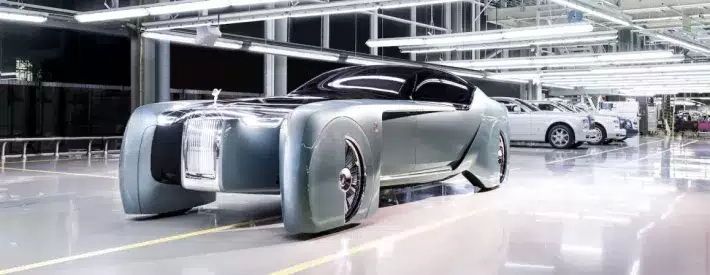Will customers still want to own self-driving cars?

Predicting who will own self-driving cars takes us to the complicated intersection of the connected, automated, shared and electric megatrends.
For anyone born last century, a car will be the second most expensive thing they ever buy, after a house. Hearts often overrule heads, and the sage advice of oil baron Paul Getty – “If it appreciates, buy it. If it depreciates, lease it” – is dismissed for the love of a particular model in the best colour.
These days, thanks to finance products such as Personal Contract Purchase, customers get the best of both worlds – the option after three years to purchase outright or return it to the lender, and repeat. No wonder the UK vehicle parc (including every vehicle type going) hit an all-time high of over 41 million last year.
What the stats say
However, within the latest set of SMMT new car registration figures – April saw the 21st consecutive monthly increase – there was a notable trend: the growth was driven entirely by fleets, with both private buyer and business registrations well down. What’s going on?
A 2023 McKinsey Mobility Consumer Pulse survey of 4,000 French, German and UK respondents provides a clue. It found that 60% owned a car, and 80% had regular access to one – an important distinction as demographics come into play.
As Doug Jenkins, Motor Technical Risk Manager at AXA Insurance, has pointed out: “In my day, passing your test and getting your first car was all about mobility. Young people still want to get from A to B, but they want choices – they’re not so worried about ownership.”
Temporary car insurance provider, Cuvva, provides some compelling statistics: the average car owner in outer London will spend £3,502 a year on running costs alone (insurance, fuel, MOT, tax and maintenance), and 31% of London car owners use their vehicle less than 10 times a month.
The unsurprising result is, as Andrew Smith, Managing Director of vehicle rental firm Sixt, told The Telegraph recently: “We see customers now who come to us every Friday and rent a car just for the weekend.”
How autonomous could drive change
So, less outright ownership and better short-term access options already. Now, let’s turn our attention to how self-driving might change the game.
In his April 2024 industry update, Scaling Self-driving Technology on the Path to Ubiquity, the CEO of Oxa, Gavin Jackson, wrote: “There’s disagreement over the sectors to focus on first, and no international consensus yet on what constitutes a safe autonomous vehicle system.
“Momentum, however, is picking up. The UK is about to deliver a new Automated Vehicles Act that will lead to regulations overseeing the in-use safety of vehicle fleets, and a host of other things.”
Two important takeaways there. First, the ubiquity; once self-driving tech is proven, it will be everywhere – from privately owned cars to vans, buses and HGVs. Second, the emphasis on fleet.
To answer the question directly, large numbers of self-driving cars will be owned by robotaxi companies (those with a UK No User-in-Charge operator licence, as per the Law Commission’s recommendations).
These vehicles will be utilitarian, but rarely set pulses racing. That’s why experts like Steve Gooding, of the RAC Foundation insists that self-driving will not signal the end of personal ownership, far from it.
“Are you really going to ditch all those bespoke choices, and the convenience of knowing the car is at your personal beck-and-call, because you’re going to be able to summon a self-driving vehicle?” Gooding asks.
Self-driving cars will clearly be an attractive proposition for those currently unable to drive. Ownership patterns will be different in urban and rural areas, and there could well be regulatory curveballs like road charging or incentives for multi-occupancy.
In any case, those with the deepest pockets will still treat themselves to amazing cars – think Rolls-Royce 103EX. For the majority, as with electric vehicles, fleet operators and leasing companies will shoulder much of the early adopter risk.




